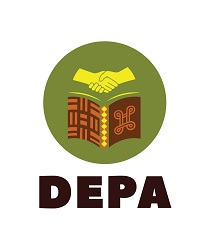Embedding and Enabling Creative Economy in Marginalised Societies: Creative Skills for Peace
A new Arts and Humanities Research Council project, Embedding and Enabling Creative Economy in Marginalised Societies: Creative Skills for Peace, to enhance human resource capacity through upskilling young artists for sustainable peace economy. This project is being conducted in collaboration with the Open University – UK (Parvati Raghuram), University of South Africa (Ashley Gunter) and the Midlands State University, Zimbabwe (Tendayi Marovah).
Background
The African Union and UN International Year of the Creative Economy for Sustainable Development 2021 highlight the importance of promoting sustainable and inclusive economic growth through providing opportunities, benefits and empowerment for all, promoting networking and sharing best practices and experiences.
Embedding cultural heritage and local art into creative economy through upskilling can create sustainable peace economies that potentially reduce the structural inequalities arising from the (pre-)conflict and improve the livelihoods of people. The research team have come together with new partners from the creative industries and artists in the UK and Africa to explore how such an enabling environment can be created.
About
This 15-month project is focusing on exploring and creating sustainable local peace economies and the ways in which this can be integrated in teaching of peace by embedding creative, soft and entrepreneurial skills and training for peace and sustainable development and enabling the reach of these communities and youth among new stakeholders, artists and cultural, creative and heritage organisations nationally, regionally (Southern Africa) and internationally (Southern Africa – UK) through networking. The project is working to leave a legacy by developing and depositing lasting educational materials for future young people to unlock the economic potential of tangible and intangible heritages.
Project Aims
The project aims to:
- Embed new knowledge of local artistic, soft, digital and entrepreneurial skills among young people thus helping to empower them, their communities through greater economic participation in the creative industry and thus to lessen conflict as the economic drivers of conflict are reduced
- Develop and deposit the outcomes of their work in local museums but also in training material that is developed as a booklet that is distributed and through an OER
- Use and embed these educational materials into the modules taught by UNISA Business School (South Africa) and MSU Faculty of Education (Zimbabwe).

